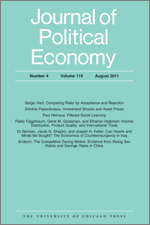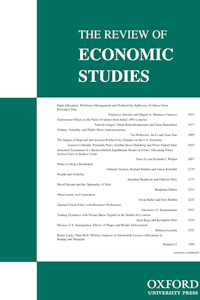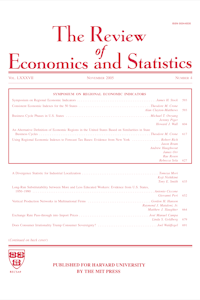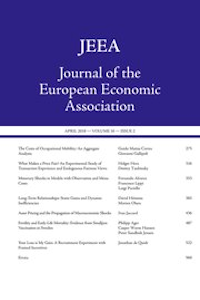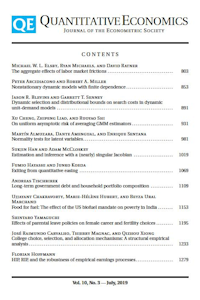
Todd, P. E. and Zhang, W.
A Dynamic Model of Personality, Schooling, and Occupational Choice
Quantitative Economics
Vol. 11(1) pp. 231-275 (2020)
Abstract: This paper develops a dynamic model of schooling and occupational choices that incorporates personality traits, as measured by the “big five” traits. The model is estimated using the HILDA dataset from Australia. Personality traits are found to play an important role in explaining education and occupation choices over the lifecycle. Results show that individuals with a comparative advantage in schooling and white‐collar work have, on average, higher cognitive skills and higher personality trait scores. Allowing personality traits to evolve with age and with schooling proves to be important to capturing the heterogeneity in how people respond to educational policies. The estimated model is used to evaluate two education policies: compulsory senior secondary school and a 50% college tuition subsidy. Both policies increase educational attainment and also affect personality traits.
Keywords: occupational choice, unobserved types, human capital investment, dynamic discrete choice
JEL Codes: D61, I26, J24
Author links: Weilong Zhang
Publisher's Link: https://doi.org/10.3982/QE890 ![]()
Cambridge Working Paper in Economics Version of Paper: A Dynamic Model of Personality, Schooling, and Occupational Choice, Todd, P. E., Zhang, W., (2019)

